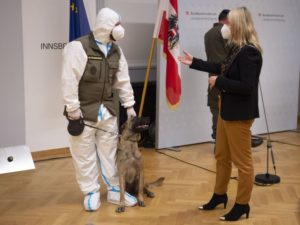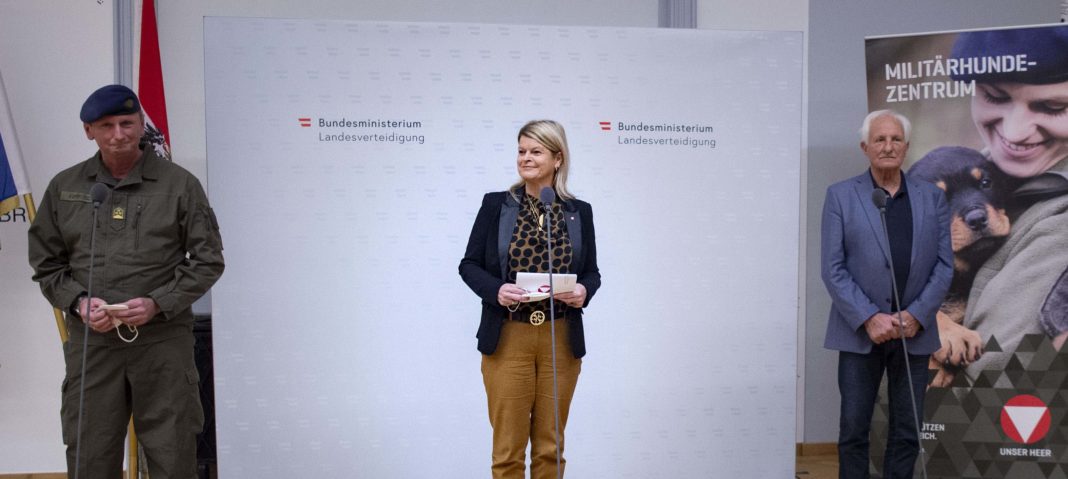The Military Dog Center presented its first trained coronavirus sniffer dog today in the presence of Defence Minister Klaudia Tanner: the Belgian shepherd “Fantasy Forever vom Seetalblick”. Prof. Dr. Wolf A. Kafka from Germany, who also took part in today’s media event, has accompanied the training in a scientific context since the beginning.
An interim report in collaboration with the military dog center and the researcher has now confirmed that sniffer dogs can sniff out the coronavirus using mouth-nose protection masks. The basic training of the first Covid military dog took a total of six months. The dog’s first test phase is now moving on to a practical trial phase. Another military dog of the Rottweiler breed is also currently in the first phase of training. Two more dogs are to follow by 2021. During the event, Defense Minister Klaudia Tanner referred to the diverse tasks and achievements of the Armed Forces: “In times of the corona crisis, our soldiers and civilian employees of the Armed Forces prove through their daily actions that they are an indispensable part of our society: From disaster relief, as is currently necessary with the masses of snow, border protection in security police assistance operations, embassy guarding or mass testing – the Armed Forces are proving how flexible, diverse and professional they are. In addition to the numerous tasks performed by the Armed Forces, our soldiers are also involved in current research, as currently demonstrated by the Military Dog Center for Covid-19 detection dog training. Here, we are drawing on the expertise of the dog handlers and the skills of our four-legged personnel in order to be able to detect the coronavirus quickly and efficiently in the future. I am very proud that we can rely on the expertise of our Armed Forces even in difficult times.”

The project should be completed in the first quarter of 2021. To achieve this, however, the dogs still have to complete a number of operational and practical training sessions on many different samples. In order to be used in real scenarios, additional practical application and routine are required. They are currently working on the precise detection of positive samples, practising with a variety of masks. The test teams of the Office of Armaments and Defence Technology and the Eastern Medical Centre support the Military Dog Centre with anonymized positive test results, which enables targeted detection work and confirmation of the dog when the correct indication is given. For a valid result, the participants must also be clinically tested in order to be able to compare the “dog result” with the “PCR test result”. So far, the Belgian shepherd dog has sniffed over 1,000 masks. The military dog handlers wear suitable protective equipment such as gloves, protective suits and masks during these missions to protect themselves from infection.










